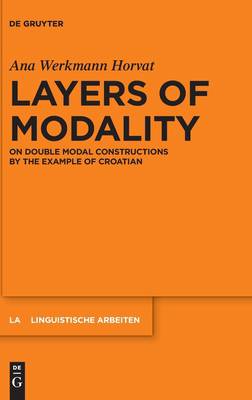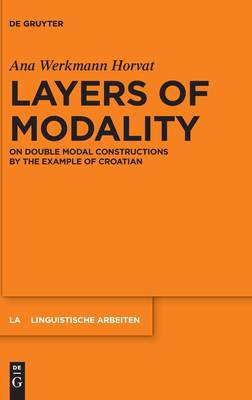
- Retrait gratuit dans votre magasin Club
- 7.000.000 titres dans notre catalogue
- Payer en toute sécurité
- Toujours un magasin près de chez vous
- Retrait gratuit dans votre magasin Club
- 7.000.0000 titres dans notre catalogue
- Payer en toute sécurité
- Toujours un magasin près de chez vous
Description
Much of the literature on modality focuses, at least implicitly, on the occurrence of single modal auxiliaries. However, cross-linguistically, modal auxiliaries can co-occur with one another, but under interesting restrictions. This monograph examines layered modal constructions and the semantic restrictions under which they combine.
The main puzzle addressed in the book is the question of ordering restrictions among modal auxiliaries and whether these have any semantic consequences, and finally, what the conceptual rationale is behind these restrictions. Based on the data from Croatian, the central proposal is that modal restrictions depend heavily on both modal force and flavour, and combine according to a hierarchy that can possibly be extended cross-linguistically since it rests on the basis of the conceptual and logical reality of human language.
The book also offers an in-depth overview of the literature on layered modal constructions as well as a valuable and extensive set of analyzed data which will be of great interest for researchers interested in verbal systems, modality, and Slavic languages.
Spécifications
Parties prenantes
- Auteur(s) :
- Editeur:
Contenu
- Nombre de pages :
- 241
- Langue:
- Anglais
- Collection :
- Tome:
- n° 578
Caractéristiques
- EAN:
- 9783110727319
- Date de parution :
- 25-10-21
- Format:
- Livre relié
- Format numérique:
- Genaaid
- Dimensions :
- 156 mm x 234 mm
- Poids :
- 548 g

Les avis
Nous publions uniquement les avis qui respectent les conditions requises. Consultez nos conditions pour les avis.






